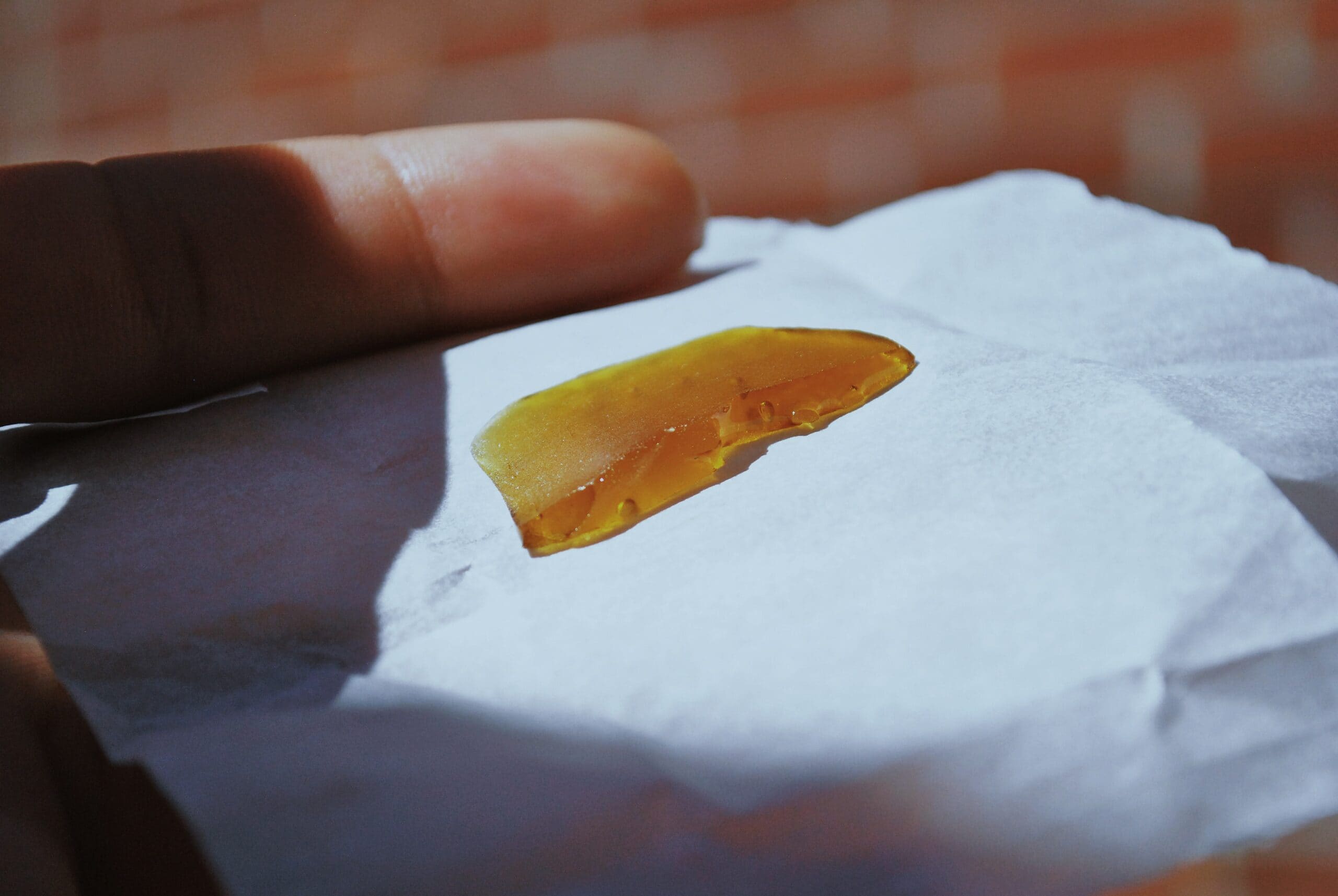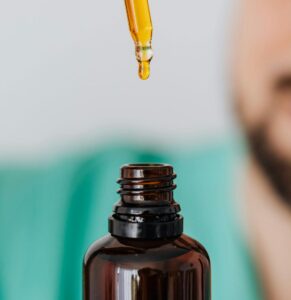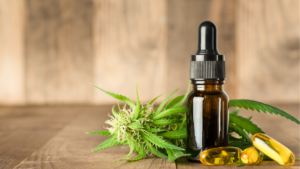At the turn of the century, cannabis enthusiasts began noticing a steep shift in the market. Regular users started smoking less and dabbing more- heating oily extracts to inhale high concentrations of cannabis. These extracts varied from shatter to wax to batter to dabs and honey. Not only were they more potent, but they were also a cleaner and a more convenient way to consume cannabis. This heralded the beginning of a new era.
At the start, cannabis extracts were made using highly flammable hydrocarbons right in their backyards and garages. This was a precarious affair with consequences of explosive proportions, quite literally.
In recent times, the technology of extracting cannabis has grown in leaps and bounds, and we will take you through each of them in great detail.
What Are The Popular Methods of Cannabis Extraction?
When it comes to cannabis extraction, two main methods exist.
Solvent-based extraction: In this method, solvents are added to the plant material to dissolve the resin, which is the concentrated part of the cannabis plant containing the cannabinoids and terpenes. The solvent is then removed, leaving behind extracts such as shatter, vape oil, or wax.
This method yields what is known as a cannabis extract.
Mechanical or solventless extraction: Mechanical or solventless extraction methods do not use solvents. Instead, the resin is pressed, beaten, or rubbed out of the plant, resulting in kief, rosin, or hash.
This method yields what is known as a cannabis concentrate.
Solvents Used to Make Cannabis Extracts
As discussed earlier, the solvent-based extraction method has been used for quite a long while now.
Let us look in detail at how these solvents work.
Hydrocarbons (Butane, Propane, Hexane, etc.)
Hydrocarbons are used to make butane hash oils (BHO) which includes budder, sauce, wax, shatter, and crumble among others.
Because hydrocarbons are highly flammable, a closed loop system of extraction should be used.
The process of extracting cannabis can be either open-looped or closed-looped. Open-loop systems have exposure to the external environment. When flammable compounds are present, open loop systems can easily cause a fire accident.
Closed-loop systems, on the other hand, are safer but more expensive to implement. Securing the equipment could cost upwards of $30,000 for an average-sized model.
It is also a requirement for manufactures using hydrocarbons to blast-proof the premises. The cost of blast proofing a room could be around $100,000.
CO2 (Supercritical CO2 Extraction)
Supercritical CO2 extraction uses CO2 to separate the different compounds from the cannabis plant material.
The carbon dioxide is subjected to supercritical conditions that causes it to fluctuate between a gas, liquid, and solid-state. It is then passed through the cannabis plant material in a closed loop system to extract the compounds and then the CO2 is evaporated. Because CO2 is a green gas, the extract produced through this method is relatively safe.
Alcohol
Ethanol is a popular solvent used to make super-concentrated Rick Simpson Oil. It follows the same principle used in creating BHO. With ethanol, the solvent is dripped over the flowers and buds of the cannabis plant, which dissolves these compounds. The next step is to eliminate the solvent and remain with the cannabis extract.
However, ethanol has a higher polarity than butane. This means that it extracts impurities such as chlorophyll, which may affect the quality of the final extract.
Non-Solvent-Based Methods for Making Cannabis Concentrates
Solventless extraction is often used when creating concentrates for medicinal use. This is because the concentrates produced through this method are relatively safer.
Shaking, Sifting, and Dry Sifting-Used to Make Kief
Kief, a type of cannabis concentrate, can be made using different mechanical techniques.
One technique that has stood the test of time and is exceptionally safe is the use of a mesh. The cannabis plant material is passed through a mesh and the kief collects at the bottom. The kief is then graded based on the level of purity.
Ice Water Extraction
Bubble hash is a popular cannabis extract that is made using kief that has been Ice Water Extracted. It is the brainchild of Neville Schoenmakers, founder of the first Cannabis Seed Bank.
In this method, the cannabis is placed in a simple jar or bubbleator with water and ice and agitated. The resin is separated by the mechanical force and it is collected. Because it uses water, this method is considered to be one of the safest and cleanest ways of making a pure, high-quality hash that has no impurities. It is also a pretty wholesome method of extraction that leaves you with most of the cannabinoids intact.
Heat and Pressure (Rosin Press)
Rosin is a viscous sap whose appearance can range from clear to very dark, and it can be used in its extracted form or as a base for cannabis edibles. Both a rosin press and a rosin bag use pressure and heat to force the trichomes out of the cannabis leaves and buds.
Types of Cannabis Extracts & Concentrates
Wax/Budder
A runny consistency characterizes wax or budder. These oils are opaque and gooey rather than being hard. It is also easy to roll them onto “a pin and dab,” but they tend to stick to the sides of the packaging container.
Pie Crust/Honeycomb
This is a form of wax/budder which is generally crumbly and brittle. It is, however, softer than shatter. Pie Crust is easier to get out of a jar but is very prone to crumbling.
Shatter
Shatter is an impressively pure cannabis concentrate that is very brittle and translucent, much like glass candy. It is mainly extracted using hydrocarbon solvents such as butane and or propane, making it a particularly potent substance.
Caviar/Jelly Hash
Caviar, also known as moonrocks, are a recent fad in the cannabis scene. Making them involves coating cannabis buds with very high-quality resin, which are then rolled in kief.
Caviar doesn’t always have to be rolled in kief, a resin coat may just suffice.
Conclusion
Cannabis extraction is just in its formative stages. With time, we expect to witness the creation of more efficient and purer methods geared towards the production of medicinal cannabis extracts. We hope that through this article, we have helped you understand how cannabis concentrates are made. Feel free to let us know if we left out anything.
About Realm of Caring
Realm of Caring Foundation (RoC), is a 501(c)3 nonprofit organization that was established by parents in 2013 to support families who were out of medical options. By creating educational resources, conducting research, and assisting families with data-rich answers to their questions, RoC continues to be a leader in the cannabinoid (cannabis/hemp) field. RoC’s no-cost Care Team has served more than 65,000 clients worldwide and supports a network of over 2,000 medical professionals. To learn more about participating or to donate to this cause, visit www.realmofcaring.org or call 1-888-210-3772.






